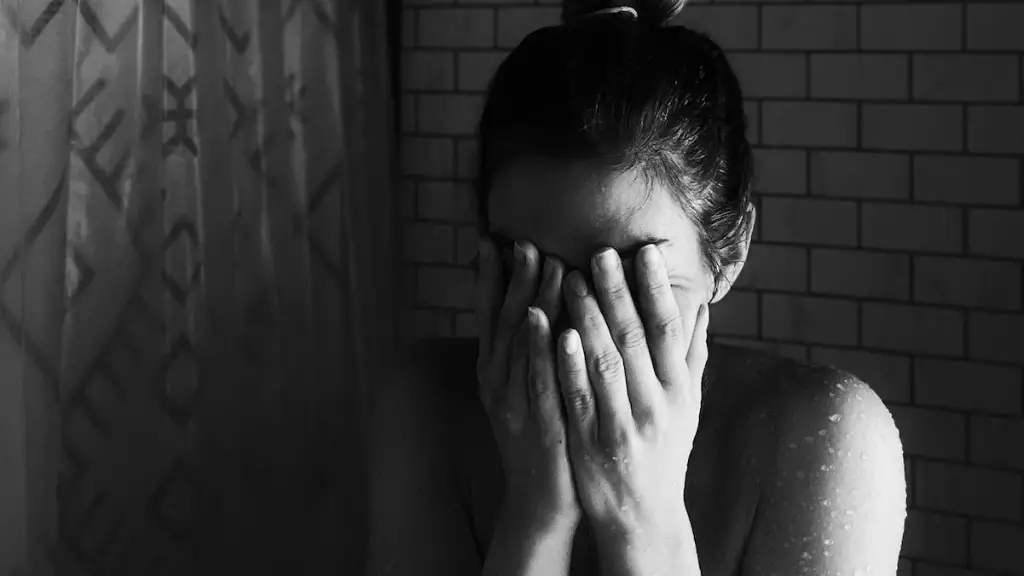It is not uncommon for women to worry aboutmiscarriage.Can crying and stress cause miscarriage? Some studies suggest that they might, but more research is needed to confirm these findings. Crying and stress may contribute to miscarriage, but they are not likely to be the only factors involved.
There is no definitive answer to this question. Some doctors say that crying and stress can lead to miscarriage, while others believe that the two are not directly linked. However, it is generally agreed that a woman who is pregnant should try to avoid stress as much as possible.
Can crying and stress affect unborn baby?
Some studies are suggesting that stress in the womb can affect a baby’s temperament and neurobehavioral development. Infants whose mothers experienced high levels of stress while pregnant, particularly in the first trimester, show signs of more depression and irritability. This is a concerning trend as it can have long-term effects on the child’s development and well-being. It is important for pregnant women to find ways to manage their stress levels, through both medical and non-medical means, in order to give their child the best chance at a healthy start in life.
There is no direct link between stress and having a miscarriage. While some studies suggest that stress can increase the risk of miscarriage, they do not show a direct cause-and-effect relationship.
Is crying cause of miscarriage
Crying during pregnancy is relatively common and is usually nothing to worry about. However, if you are experiencing severe depression during pregnancy, it could have a negative impact on your pregnancy. If you are feeling depressed, it is important to speak to your doctor or midwife so they can help you get the support you need.
Many expecting mothers worry about how different sounds may affect their developing baby. It is true that increased noise levels can cause stress, and that this can lead to changes in the body that can, in turn, affect your baby. However, it is important to keep in mind that sound can travel through your body and reach your baby, so very loud noises may be able to damage your baby’s hearing. If you are concerned about noise levels, it is best to consult with your doctor or midwife to get their professional opinion.
How much stress is too much during pregnancy?
If you start to experience any of the following symptoms, it’s important to let your doctor know so they can help you feel better:
– Feeling worried all the time
– Losing interest in your life
– Feeling hopeless
– Sleeping or eating more or less than usual
– Having difficulty concentrating
If you’re feeling any of these things, don’t suffer in silence – reach out for help.
Miscarriage is the loss of a pregnancy before the 20th week. Several factors may cause miscarriage, including infection, exposure to TORCH diseases, hormonal imbalances, improper implantation of fertilized egg in your uterine lining, how old you are, uterine abnormalities, and incompetent cervix (your cervix begins to open too early in pregnancy). If you have had a miscarriage, talk to your doctor about ways to reduce your risk of having another one.
What has the highest chance of causing a miscarriage?
Smoking, alcohol, and illicit drug use are all risk factors for miscarriage. Women who smoke during pregnancy have a greater risk of miscarriage than nonsmokers. Heavy alcohol use and illicit drug use also increase the risk of miscarriage.
A miscarriage is a pregnancy that ends on its own, within the first 20 weeks of gestation. Approximately 10 to 20 percent of recognized pregnancies end in miscarriage. Most miscarriages occur within the first eight weeks of pregnancy.
Miscarriage in the second trimester (between 13 and 19 weeks) is less common, happening in 1 to 5 percent of pregnancies. Pregnancy loss that happens after 20 weeks is called stillbirth. Stillbirths occur in about 1 in 160 pregnancies.
What happens when you cry in early pregnancy
It’s normal to experience mood swings and crying spells during pregnancy, especially during the first trimester as hormones ramp up. It can also take some time to absorb the emotional weight of life’s big changes, like having a child. Take a deep breath. It’s your pregnancy, you can cry if you want to!
It is important to manage stress levels during pregnancy, as high levels of stress may cause certain problems during childhood, such as trouble paying attention or other mental health conditions. It is possible that stress also may affect your baby’s brain development or immune system.
Does mother emotions affect fetus?
It is important to try and remain calm and happy during pregnancy as stress and anxiety can have a negative impact on the developing baby. Try to take some time out for yourself each day to relax and de-stress. If you are feeling particularly anxious or stressed, speak to your doctor or midwife for advice.
Abuse during pregnancy is a serious problem that can have dire consequences for both the mother and the developing baby. The emotional responses triggered by abuse, such as anxiety, depression, drug use, sleeplessness, and reduced appetite, can all lead to health risks for the pregnant woman and her developing baby. The abuse can result in miscarriage, as well as direct or indirect injury to the fetus. If you are pregnant and experiencing abuse, it is important to seek help from a safe place as soon as possible.
Does emotional stress affect pregnancy
Chronic stress during pregnancy can have a negative impact on both mother and child. It can cause problems with the baby’s growth and development, as well as increase the risk of problems in the future. This stresses the importance of managing stress during pregnancy, in order to ensure a healthy mother and child.
A pregnant woman’s heart rate and blood pressure can affect the heart rate of her developing fetus, a new study concludes. Stress-related changes in a pregnant woman’s heart rate and blood pressure, along with chronic anxiety, can all affect the heart rate of her developing fetus. The findings suggest that pregnant women need to be extra careful to manage their stress levels and anxiety to ensure a healthy pregnancy.
Can stress cause Down syndrome?
There is increasing evidence that stress levels during the time of conception can have an impact on the development of the fetus. Down syndrome is one condition that has been linked to high stress levels in the parents during conception. The theory is that the high stress levels can cause a defect in the chromosomes, which in turn can lead to the development of Down syndrome. While more research is needed to confirm this theory, it is certainly an interesting area of study.
A 2019 review of medical studies suggests that sleeping on your back carries risks, but it doesn’t seem to matter whether you sleep on your right or left side. These studies do have some flaws, though. Third trimester pregnancy loss is very uncommon. Therefore, there aren’t many cases from which to draw conclusions.
Why do most miscarriages happen at 7 weeks
A miscarriage is a pregnancy that ends before 20 weeks. Most miscarriages happen before the 13th week of pregnancy.
We know that most miscarriages happen due to a major genetic abnormality in the fetus. The sperm and the egg (which are known as gametes) each contain half the genetic material necessary for a complete person. Sometimes, there are problems with the way this genetic material combines. This can happen for many reasons, including chance. Most of the time, we don’t know why it happens.
If you have had a miscarriage, you are not alone. Miscarriage is very common. In fact, 1 in 4 pregnancies end in miscarriage.
First trimester miscarriages are often caused by problems with the chromosomes of the foetus. A pregnancy may also be more likely to end in miscarriage if you: are obese, smoke, use drugs, drink lots of caffeine, drink alcohol.
Conclusion
There is no scientific evidence to support the claim that crying and stress can cause miscarriage. However, some experts believe that emotional stress may play a role in early pregnancy loss.
While stress and crying may not be the direct cause of a miscarriage, they can contribute to an unhealthy pregnancy. When a pregnant woman is stressed, her body releases the hormone cortisol, which can lead to pre-term labor, low birth weight, and placental abruption. Crying can also lead to dehydration, which can be harmful to both the mother and the developing baby. If a woman is experiencing a high amount of stress or crying, she should speak to her doctor to see if there are any steps she can take to improve her situation.





